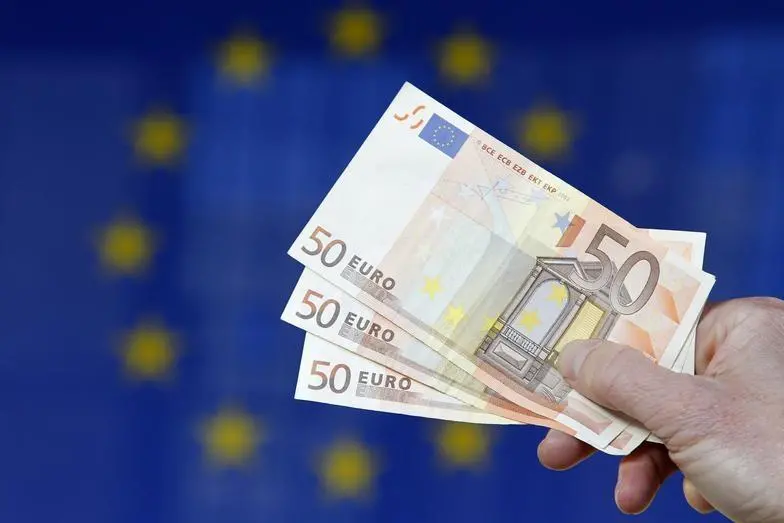PHOTO
Euro zone government bond yields headed for their largest weekly drop since July 2024 on Friday as investors sought safe havens after far-reaching U.S. tariffs darkened the outlook for the global economy and deepened fears of a recession.
Countries around the world threatened retaliation after U.S. President Donald Trump announced new tariffs, feeding expectations for a global downturn and sharp price hikes in the world's biggest consumer market.
That caused a sell-off in stocks as investors sought the relative safety of government bonds.
The German 10-year bond yield, the benchmark for the euro zone bloc, fell 10 basis points to 2.541%. Yields were set for a weekly decline of 18 bps, the most since late July last year.
Italy's 10-year yield was down 6 basis points at 3.71%, and the gap between Italian and German 10-year bond yields widened to 116 bps.
The French 10-year yield fell 7 bps to 3.297%.
All three 10-year yields continued their slide from Thursday and were at their lowest since early March, before Germany announced its massive spending and fiscal plans that drove euro zone bond yields higher.
'SYMBOLISM'
Kenneth Broux, senior strategist, foreign exchange and rates, at Societe Generale, described the German bonds' move back to levels before Berlin's spending plans as "symbolic" as Europe's potential growth story has been overshadowed by U.S. tariffs.
"When the dust will settle on this, you would expect yields to find a base and to start grinding higher again because the outlook, besides the tariff story, what Germany is doing with its economy favors higher nominal yields over time," he said.
"But that's not the short term story. It's been overshadowed by the tariffs. How much is it going to take off European growth? What does it mean for the ECB and I think that's what we're trying to find out." Broux said.
German industrial orders stabilised in February, data showed on Friday and January's drop was revised to be less steep, showing that Germany's industrial sector slump could have bottomed out, but the recovery may be slow as U.S. tariffs start to have an effect.
Germany's two-year bond yield, which is more sensitive to European Central Bank rate expectations, hit its lowest since early November 2022 and was last down 8 bps at 1.849%.
Markets are pricing in a more than 70% chance of a quarter-point rate cut this month and see the main rate of 1.75% by the end of the year, implying three more cuts by the ECB.
Markets also have an eye on U.S. non-farm payrolls data later in the day, which is expected to show a slowdown in jobs growth in March.
(Reporting by Yadarisa Shabong in Bengaluru; Editing by Amanda Cooper, Barbara Lewis and Tomasz Janowski)





















